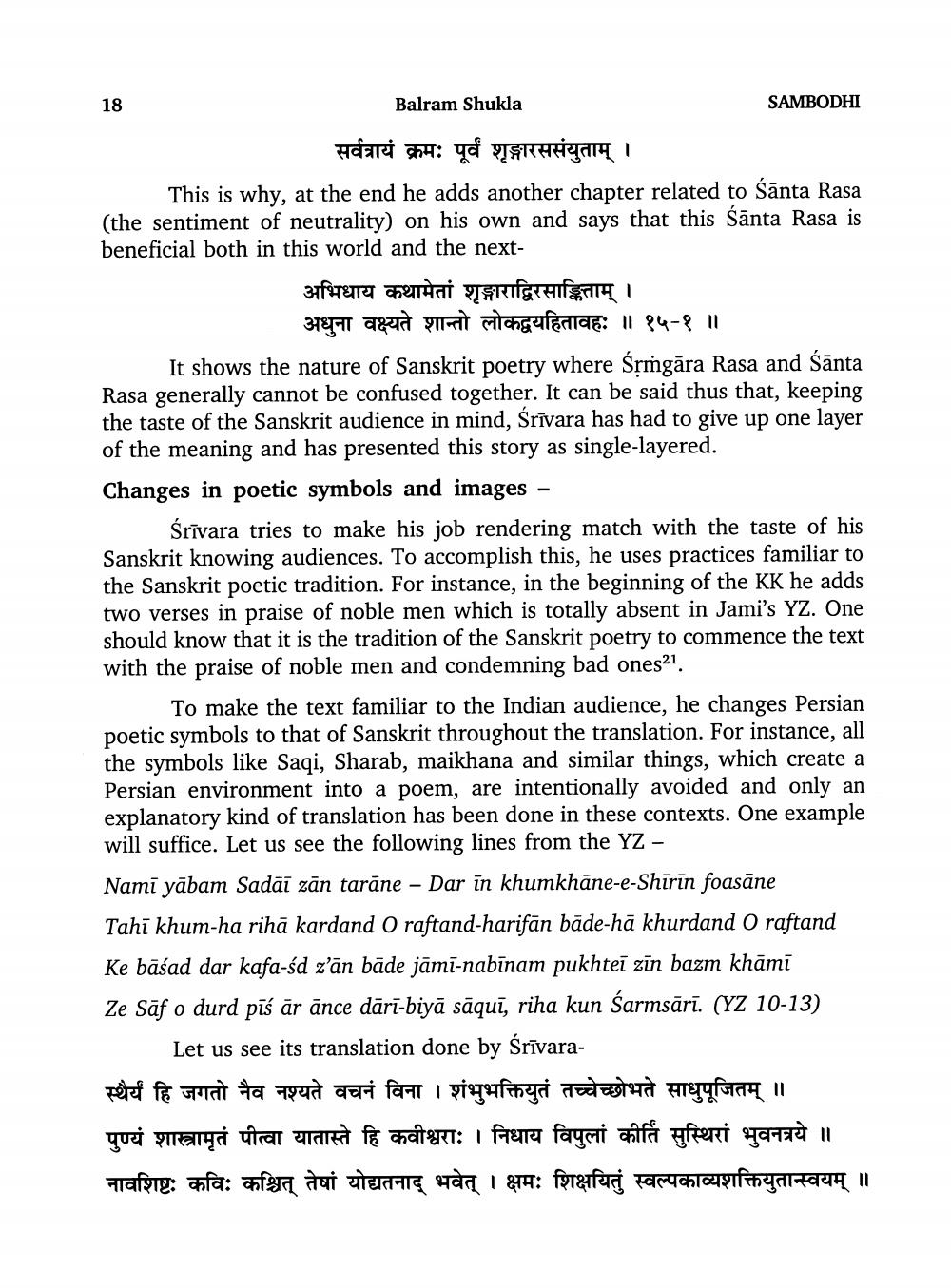________________
18
Balram Shukla
SAMBODHI
सर्वत्रायं क्रमः पूर्वं शृङ्गारससंयुताम् । This is why, at the end he adds another chapter related to Santa Rasa (the sentiment of neutrality) on his own and says that this Sānta Rasa is beneficial both in this world and the next
अभिधाय कथामेतां शृङ्गाराद्विरसाङ्कित्ताम् ।
378 and plaid milchgefenice: 11 84-8 11 It shows the nature of Sanskrit poetry where śrmgāra Rasa and śānta Rasa generally cannot be confused together. It can be said thus that, keeping the taste of the Sanskrit audience in mind, Srīvara has had to give up one layer of the meaning and has presented this story as single-layered. Changes in poetic symbols and images -
Śrīvara tries to make his job rendering match with the taste of his Sanskrit knowing audiences. To accomplish this, he uses practices familiar to the Sanskrit poetic tradition. For instance, in the beginning of the K two verses in praise of noble men which is totally absent in Jami's YZ. One should know that it is the tradition of the Sanskrit poetry to commence the text with the praise of noble men and condemning bad ones21.
To make the text familiar to the Indian audience, he changes Persian poetic symbols to that of Sanskrit throughout the translation. For instance, all the symbols like Saqi, Sharab, maikhana and similar things, which create a Persian environment into a poem, are intentionally avoided and only an explanatory kind of translation has been done in these contexts. One example will suffice. Let us see the following lines from the YZ - Nami yābam Sadāī zān tarāne - Dar in khumkhāne-e-Shīrīn foasane Tahi khum-ha rihā kardand o raftand-harifān bāde-hā khurdand O raftand Ke bāśad dar kafa-śd z'ān bāde jāmi-nabīnam pukhteī zīn bazm khāmi Ze Säf o durd pīś är ānce dārī-biyā sāquī, riha kun Śarmsārī. (YZ 10-13)
Let us see its translation done by Śrīvaraस्थैर्यं हि जगतो नैव नश्यते वचनं विना । शंभुभक्तियुतं तच्चेच्छोभते साधुपूजितम् ॥ पुण्यं शास्त्रामृतं पीत्वा यातास्ते हि कवीश्वराः । निधाय विपुलां कीर्तिं सुस्थिरां भुवनत्रये ॥ नावशिष्टः कविः कश्चित् तेषां योद्यतनाद् भवेत् । क्षमः शिक्षयितुं स्वल्पकाव्यशक्तियुतान्स्वयम् ॥




